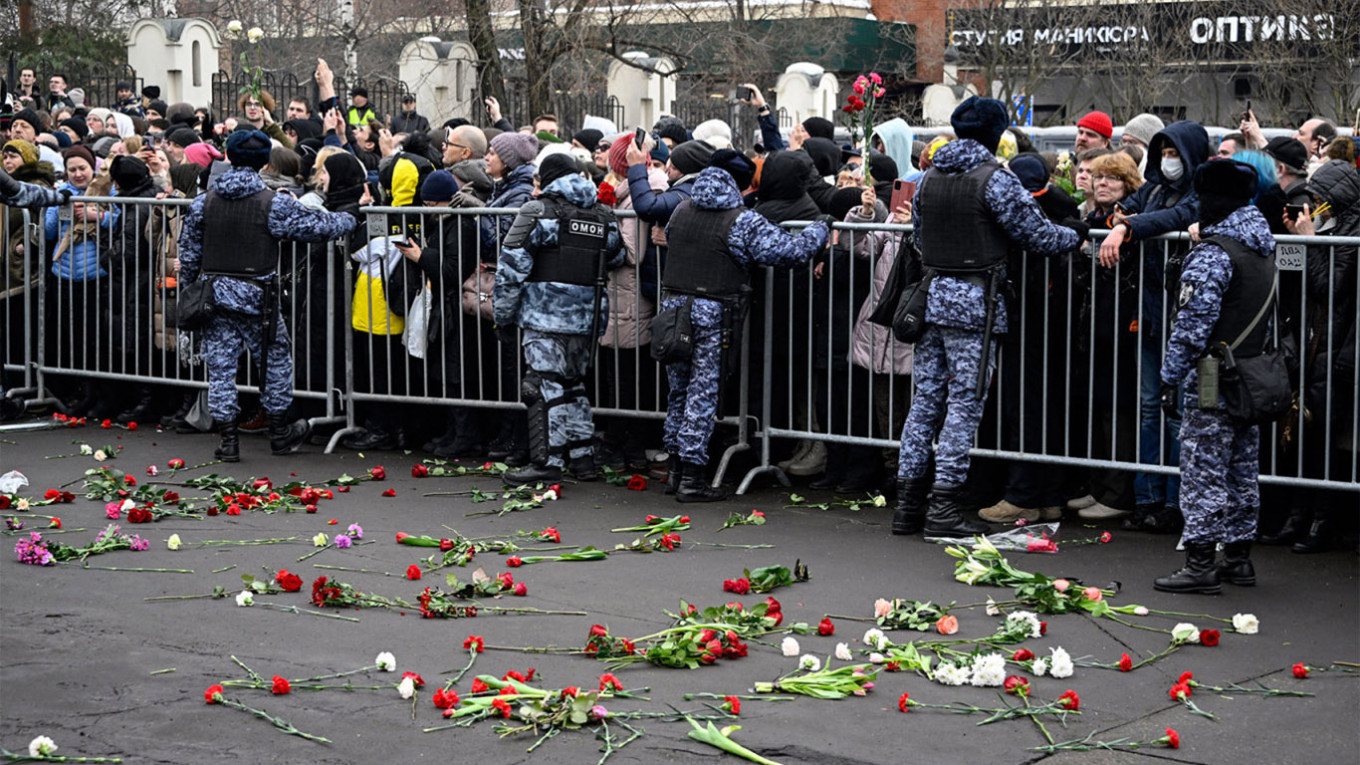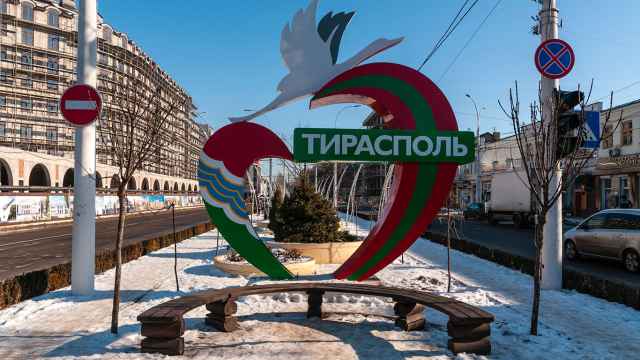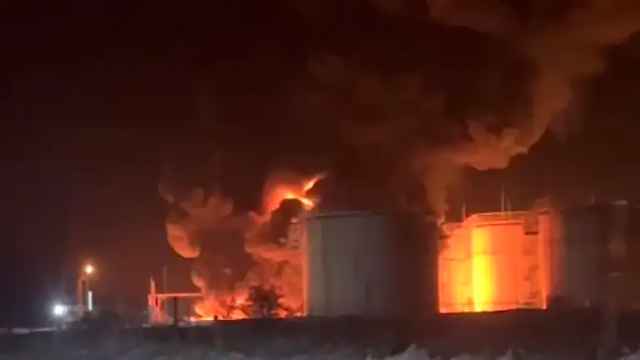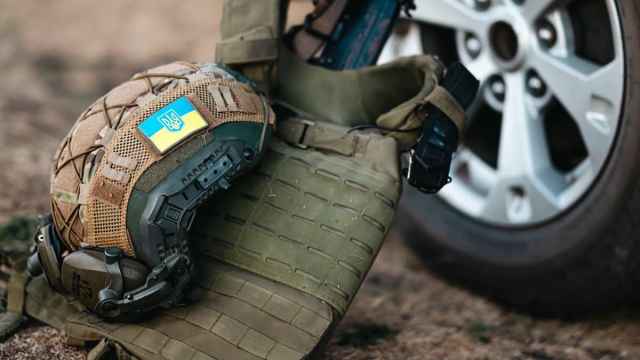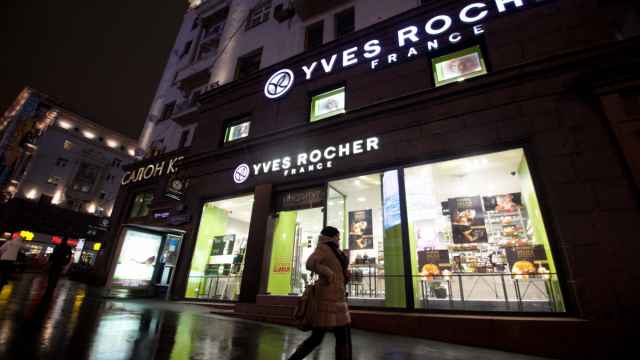From the death of Alexei Navalny and the re-emergence of Islamic terrorism in Russia, to increasing inflation and economic woes, 2024 has been a turbulent year.
The Moscow Times looks back at the six most important stories of the year:
Feb. 16: The Death of Alexei Navalny
The death of opposition leader Alexei Navalny sent shockwaves across the globe. Navalny, 47, died in the Arctic prison colony where he had been transferred less than two months before. He was in the middle of serving a 19-year prison sentence on trumped-up charges of “extremism.”
Repeated arrests, prison sentences, constant harassment and even a near-fatal poisoning could not deter Navalny. After months of recovery in Germany, he returned to Russia in January 2021 and was promptly arrested.
Navalny was known worldwide for his investigations into high-level corruption that regularly targeted some of Russia’s most famous political figures and oligarchs. These investigations, which started as LiveJournal blog entries and eventually grew into feature-length films with animation and drone footage, galvanized mass protests.
Thousands gathered for his funeral in Moscow, and people were still queuing to lay flowers at his grave days later.
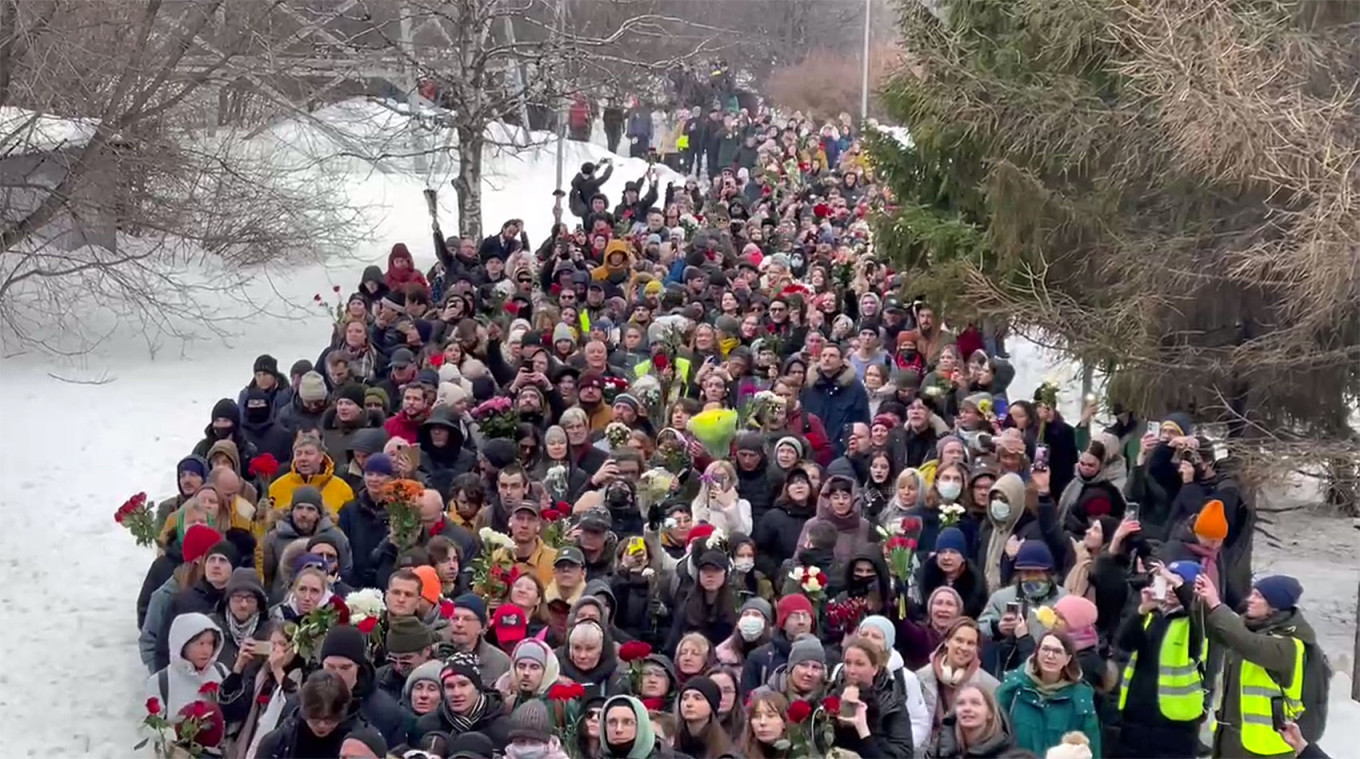
The sense of despair in the immediate aftermath of his death was palpable. Meduza photo editor Evgeny Feldman, who spent years photographing Navalny, described the feeling as the death of hope: “I felt that my hope in a better Russia was personalized in him. And that hope, it almost died [when he was poisoned in 2020]. And it died now… The end of the greatest hope we’ve ever had.” That sentiment was echoed by many ordinary people.
March 22: The Crocus City Hall Attack
On a Friday night in March, four gunmen stormed Crocus City Hall, a popular concert venue just outside of Moscow, ahead of a sold-out show. The attack, which left 145 people dead and more than 500 others wounded, sent shockwaves through Russian society.
Islamic State affiliate ISIS-K claimed responsibility for the attack, the deadliest in Russia in two decades, while Moscow also blamed Ukraine and the West.
The suspected gunmen were arrested and dragged into court with bruises and cuts all over their faces. One was even rolled in on a medical gurney, making it clear they had been subjected to violence or even torture.
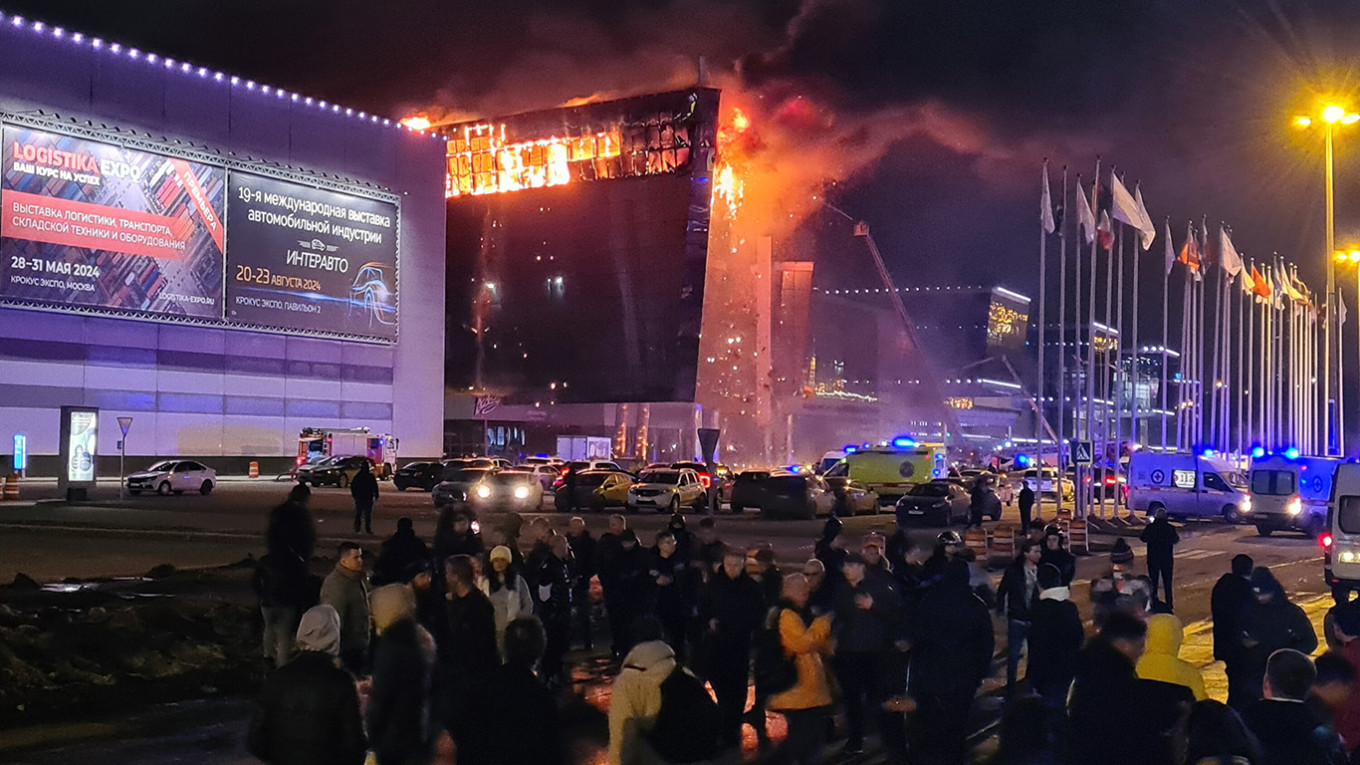
In total, at least 24 people have been arrested in connection to the incident.
Mass deportations of migrants followed the attack as the suspects were from the Central Asian Republic of Tajikistan. The anti-migrant sentiment has only intensified, with the government passing a raft of anti-migrant legislation.
On March 7, the U.S. Embassy in Moscow said that it was aware of “imminent plans” by “extremists” to target public gatherings in the Russian capital over the next two days. Just three days before the attack, Putin publicly dismissed Western warnings of an imminent attack in Moscow as propaganda designed to scare Russian citizens.
June 23: The Dagestan attacks
Armed assailants attacked Orthodox churches and synagogues in Russia's majority Muslim republic of Dagestan. The gunmen launched simultaneous attacks in Dagestan's largest city of Makhachkala and the coastal city of Derbent.
Seventeen police officers and five civilians were ultimately killed in the attacks.
The state-run TASS news agency cited a law enforcement source as saying the "gunmen who carried out attacks in Makhachkala and Derbent are supporters of an international terrorist organization," but did not specify the organization.
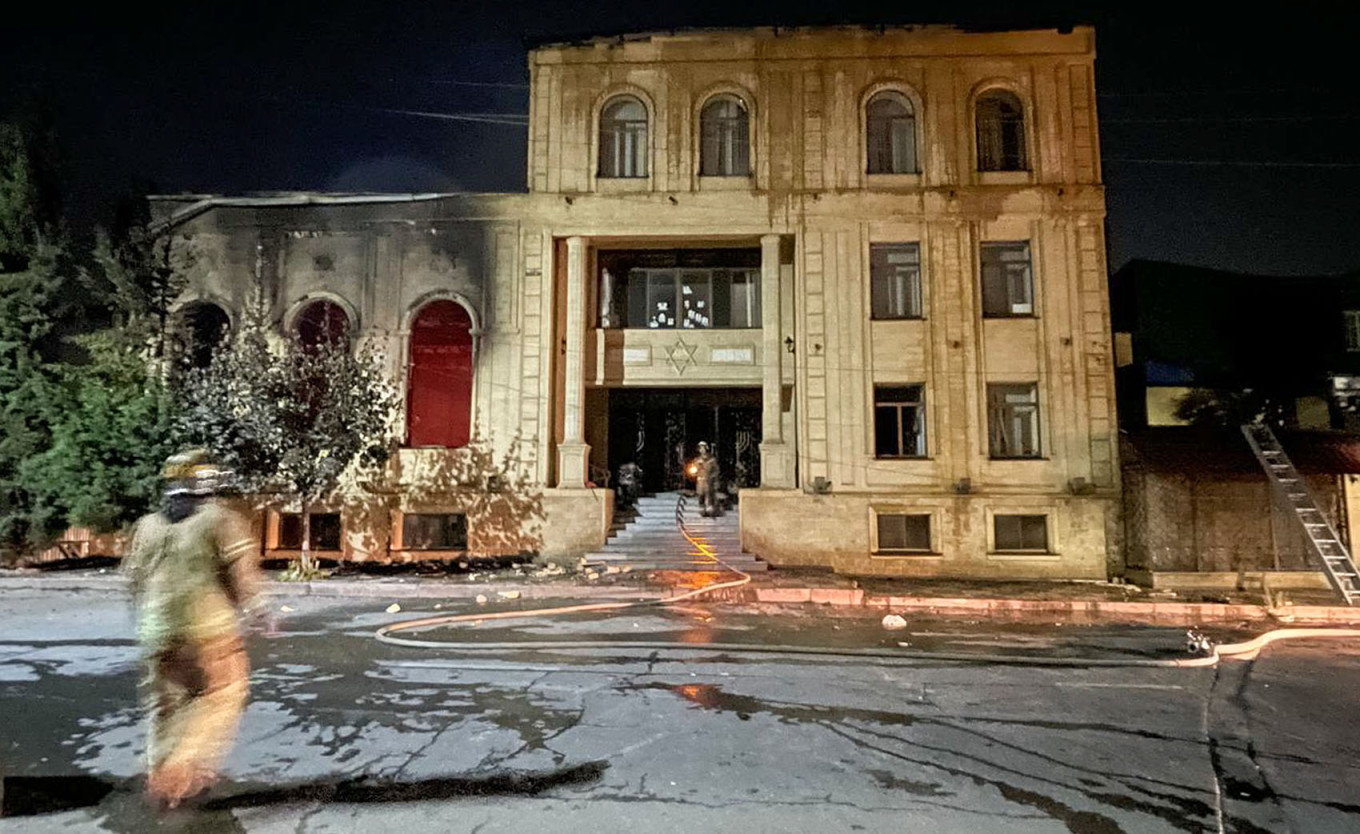
Many of the attackers were relatives of the head of Dagestan’s Sergokalinsky district Magomed Omarov, who was immediately dismissed from his post. Another of the attackers was Gadzhimurad Kagirov, a freestyle wrestler who previously represented the Eagles MMA club, co-founded by former UFC Lightweight Champion and Makhachkala native Khabib Nurmagomedov.
“I think the biggest takeaway from the profiles of the shooters is that the radicalization pool just grew so much larger, and the Russian authorities are in a lot of trouble,” Harold Chambers, an analyst focusing on nationalism, conflict and security in the North Caucasus, told The Moscow Times.
Dagestan went so far as to temporarily ban the niqab, a full-face veil worn by some Muslim women, following the attacks.
Aug. 1: The Russia-West Prisoner Exchange
After months of multilateral negotiations, Russia and the West carried out the largest prisoner exchange since the Cold War on an airport tarmac in Ankara, Turkey. Russia released 16 prisoners, while the West released eight.
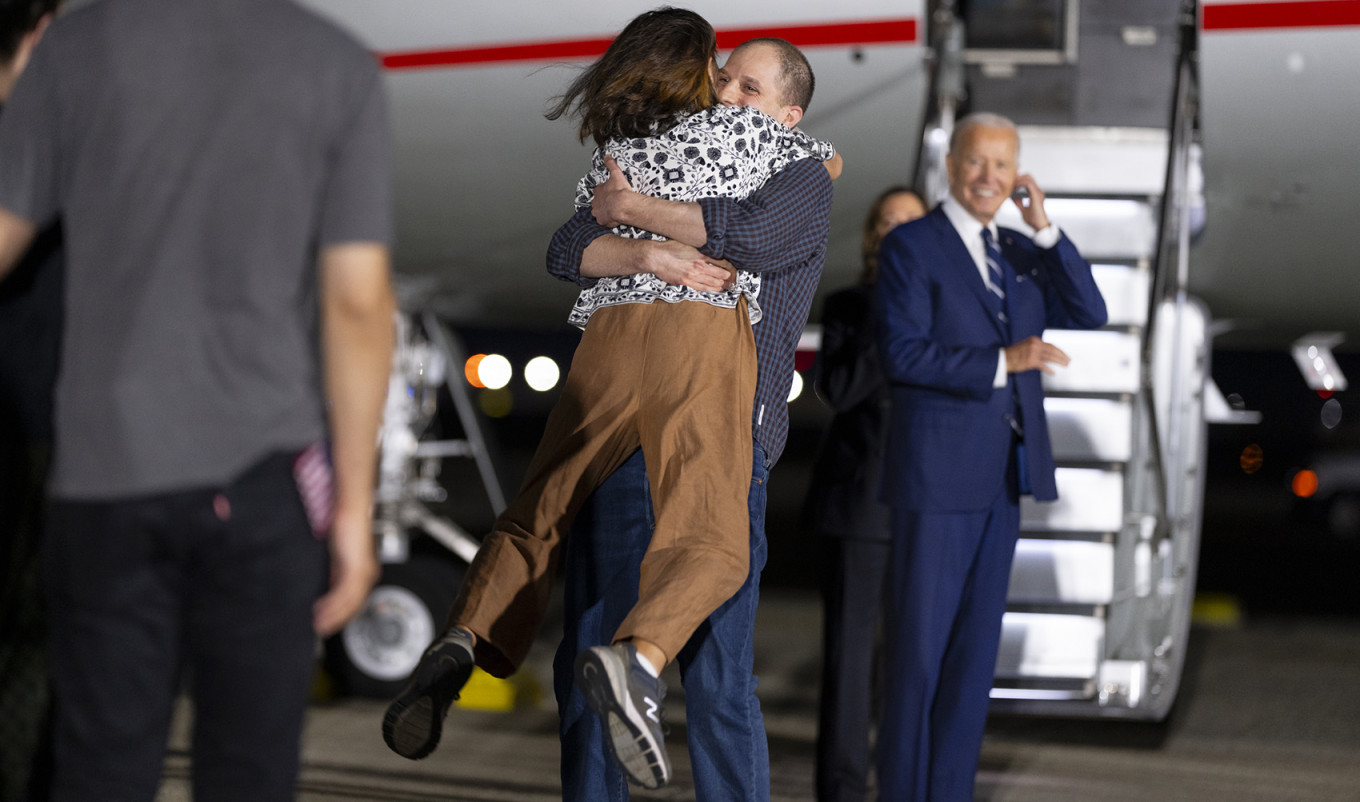
When all was said and done, Russia freed the likes of journalist Alsu Kurmasheva, opposition leaders Vladimir Kara-Murza and Ilya Yashin, Navalny deputies Ksenia Fadeeva and Lilya Chanysheva, artist Sasha Skochilenko and more, in addition to U.S. journalist Evan Gershkovich and ex-Marine Paul Whelan.
Russia received convicted murderer and FSB officer Vadim Krasikov, a family of “illegals” residing in Slovenia, businessman Vladislav Klyushin and others.
U.S. National Security Adviser Jake Sullivan said that Alexei Navalny, who died in a Russian prison in February, was supposed to be included in the swap.
Aug. 6: The Kursk offensive
Ukraine stunned Russia and the international community when it sent troops into Russia’s Kursk region on Aug. 6. The next day, President Volodymyr Zelensky announced that Ukraine controlled 1,250 square kilometers (almost 500 square miles) of Russian territory. In his words, the cross-border incursion was done to create a "buffer zone" to prevent further Russian attacks.
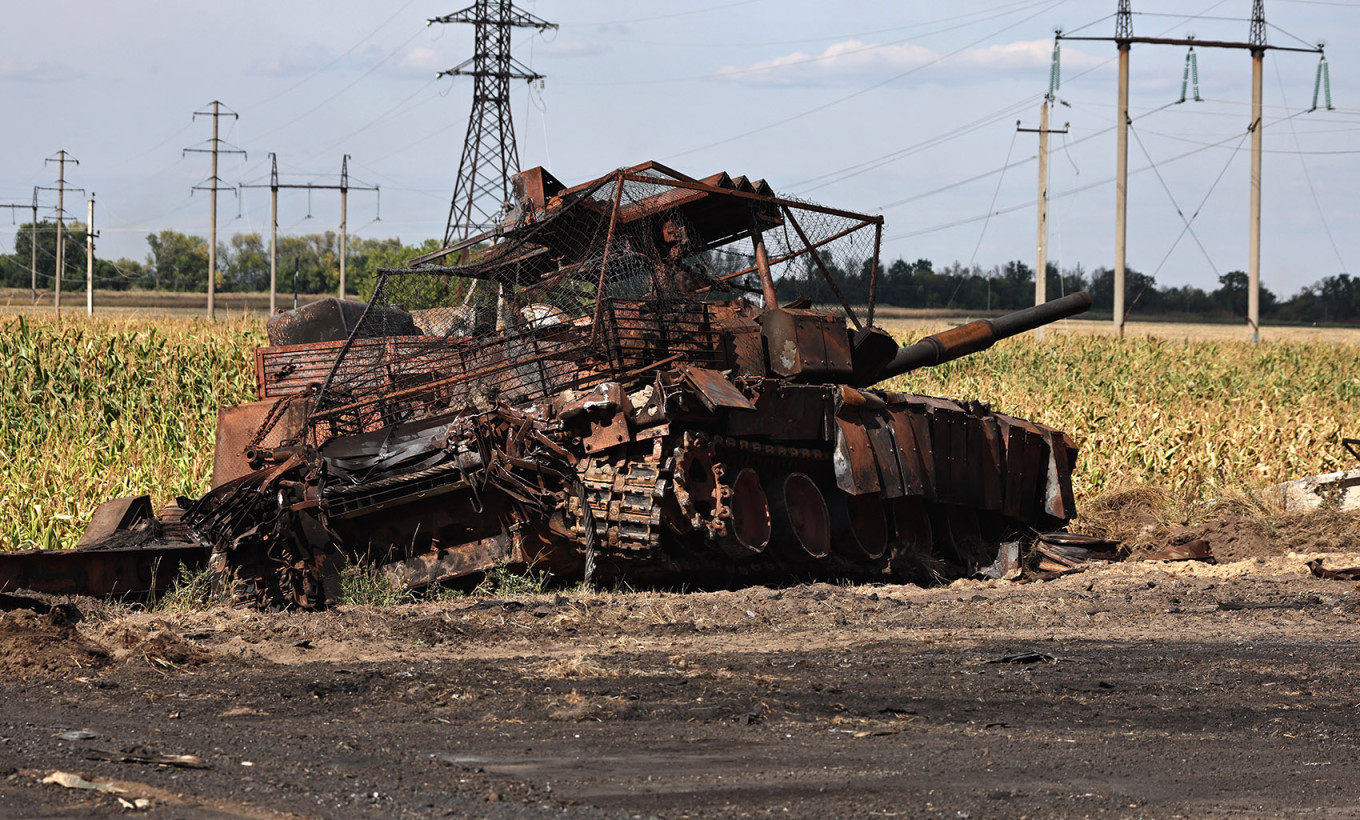
In September, the Kursk region’s governor announced that Russia had evacuated more than 150,000 civilians from Kyiv-held territory as well as the surrounding areas.
Many believe that Ukraine wants the territory to be used as a bargaining chip in eventual peace negotiations with Russia.
The incursion eventually led to the announcement that North Korea would be sending 10,000 troops to Russia to help fight in the war. Many of those troops ended up in the Kursk region. On Dec. 18, a U.S. official claimed that North Korean troops had suffered “several hundred” casualties in Kursk.
Despite this, Ukraine still holds territory in the Kursk region.
December: Inflation
Inflation has been an issue worldwide, and Russia has not been spared. Putin himself acknowledged inflation, a key indicator that an economy is overheating, as an issue in his end-of-year press conference.
Officially, Russia’s inflation is projected to reach 8-8.5%, double its target of 4%. Other estimates suggest it may be even higher. Research company ROMIR showed a 22.1% year-on-year inflation rate in September, while official data showed a 9.67% increase. Their analysis is based on the price of several consumer goods.
The price of butter, for example, rose 25.7% between Jan. 1 and Oct. 28, leading some supermarkets to put their butter inside plastic containers and butter imports from Belarus and Turkey.
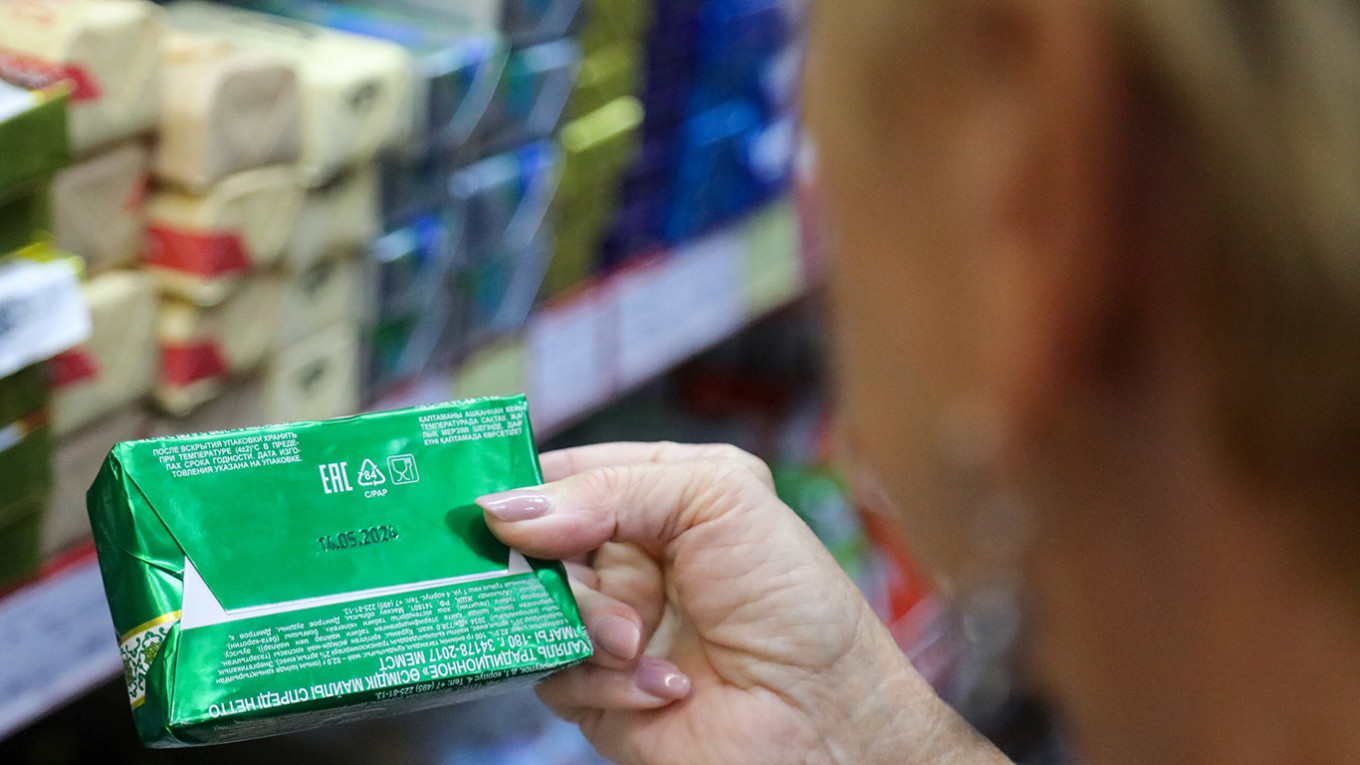
To fight the problem, the Central Bank raised its key rate to 21% in October and maintained this rate at its most recent meeting on Dec. 20 despite widespread expectations that it would hike the rate to 23-25%.
Sberbank CEO German Gref warned in December that the economy was showing “significant” signs of a slowdown in some sectors, including housing construction and investment. Gref warned the Central Bank against “overshooting” its rates policy, making it “harder to return to the rails of economic growth.”
Some economists say that higher borrowing costs have less of an impact on reining in price rises because inflation is driven by record defense spending for the war in Ukraine.
A Message from The Moscow Times:
Dear readers,
We are facing unprecedented challenges. Russia's Prosecutor General's Office has designated The Moscow Times as an "undesirable" organization, criminalizing our work and putting our staff at risk of prosecution. This follows our earlier unjust labeling as a "foreign agent."
These actions are direct attempts to silence independent journalism in Russia. The authorities claim our work "discredits the decisions of the Russian leadership." We see things differently: we strive to provide accurate, unbiased reporting on Russia.
We, the journalists of The Moscow Times, refuse to be silenced. But to continue our work, we need your help.
Your support, no matter how small, makes a world of difference. If you can, please support us monthly starting from just $2. It's quick to set up, and every contribution makes a significant impact.
By supporting The Moscow Times, you're defending open, independent journalism in the face of repression. Thank you for standing with us.
Remind me later.


